Although Earl Grey was a traditional afternoon tea, it actually makes a perfect cup of tea at any time of day! The addition of bergamot to black tea is what makes it a distinctive, full-bodied and refreshing drink with its unique citrus overtones and alongside this it gives us some benefits as well. Black tea has been quite well researched to date and evidence shows that it can help lower some of our heart disease and stroke risk factors.
There are some minor concerns around excessive consumption of bergamot though, so in this article we take a look at how safe bergamot is as well as delving into the history of Earl Grey and how you can make the most of this unique brew in your day. We also review some of the bestselling Earl Greys and consider what makes these your best Earl Grey tea choice.Quick Comparison: Top 10 Best Earl Grey
1. Bigelow Earl Grey Tea
Made with handpicked black tea blended with natural bergamot oil from Calabria in Italy, the Bigelow Earl Grey is Non-GMO Project Verified and certified kosher. This six pack of 20 count tea bags are individually wrapped for freshness and have been manufactured in the US.
Although this is an aromatic Earl Grey, some recent drinkers have found that this aroma does not follow through into its flavor. Some also consider that the black tea itself lacks real depth of body.Pros
Cons
2. Taylors of Harrogate Earl Grey
Made with high-altitude tea from the Blue Mountains in southern India and delicate and light teas from Indonesia, the Taylors of Harrogate Earl Grey is also flavored with natural bergamot. Some consider that this is a lighter flavored Earl Grey; lacking in bergamot flavor, and it may also be dustier than other Earl Greys.
This comes as a 50 count box of tea bags which are not individually wrapped. This is Rainforest Alliance Certified and Non-GMO Project Verified.Pros
Cons
3. Harney & Sons Earl Grey Supreme
The 20 sachet/tea bag pack of Harney & Sons Earl Grey supreme is presented in a reusable tin. This Earl Grey is a four black tea blend, silver tips and natural bergamot. This is a kosher certified tea. The pyramid bags can be more prone to leaking and some drinkers have found that this is much weaker than comparable Earl Greys and may lack bergamot flavor.
Pros
Cons
4. Ahmad Tea Aromatic Earl Grey
A 17.6 oz presentation tin of loose Earl Grey, the Ahmad Tea aromatic Earl Grey is a multi-origin black tea blend with bergamot flavor. The manufacturer is also a member of the Ethical Trade Partnership. The bergamot in this is from flavoring rather than natural oil and this gives it a stronger and more perfumed bergamot flavor than other Earl Greys. This tea will also become very bitter if left over its steeping time.
Pros
Cons
5. Numi Organic Tea Aged Earl Grey
Made with aged organic and Fair Trade Assam and Italian organic bergamot, the Numi Organic Tea aged Earl Grey is a robust brew with subtle notes of citrus. This triple pack of 18 count tea bags will need steeping for between four and five minutes although some drinkers consider that even though this is an aged tea, it does still lack flavor.
This Earl Grey is also Non-GMO Project Verified and Certified B Corporation. There can be a risk of not receiving the triple pack - instead just receiving one box.Pros
Cons
6. Stash Tea Organic Earl Grey Tea
Blended in the US from global team the Stash Tea Company organic Earl Grey is a blend of black tea, green tea and bergamot oil. The addition of green tea will not give the bitter taste that occurs when it is steeped at the higher temperatures of black tea. This Earl Grey is gold-colored and has a full bodied and invigorating taste which is not overwhelmed with the bergamot.
If you are used to drinking traditional Earl Grey you may find that the addition of the green tea does give a lighter brew which you may not be as keen on. This tea is also Non-GMO Project Verified and made by a B Corporation. This box contains 100 individually wrapped tea bags.Pros
Cons
7. Golden Moon Tea Tippy Earl Grey
Containing natural Italian bergamot oil and a triple blend of Chinese Keemun, Yunnan and Indian Assam, the Golden Moon Tea tippy Earl Grey is certified USDA organic and is free from any GMO ingredients. This 8 oz bag of whole leaf loose tea comes in a resealable pack.
Some have found the flavor in this tea weaker than other Earl Greys and that the bergamot oil may be a little too subtle for some tastes. This also comes with a satisfaction guarantee.Pros
Cons
8. VAHDAM, Earl Grey Tea Leaves
The 16 oz pack of VAHDAM Earl Grey loose tea comes in a zipper resealable pack. The Indian black tea is blended with natural bergamot oil to give a bright, citrusy and floral brew. This will need steeping for between three and five minutes for maximum flavor.
This loose tea may be weaker than other Earl Greys and although it does have a strong floral aroma, this may not always come through in its flavor. Although this pack is designed to be resealable, you can have some problems resealing it after opening. The manufacturer also offers a satisfaction guarantee with this tea.Pros
Cons
9. Mighty Leaf Organic Earl Grey
The Mighty Leaf organic Earl Grey comes as a triple pack of 15 compostable sachets/pyramid tea bags. The tea is sourced from high-altitude China and Ceylon teas and is flavored with essence of natural bergamot. As well as USDA certified organic, this is also kosher. Older batches of this tea used to contain jasmine essence and some drinkers consider that the newer tea without the jasmine has lost some of its flavor.
Pros
Cons
10. Teabox Classic Earl Grey
The loose leaf Teabox Classic Earl Grey is made with premium Assam tea - denoted as an ‘orthodox Assam’ and pure extract of bergamot. This gives a full bodied, robust caramel-like and malty flavor with a citrus twist. This 3.5 oz pack of loose tea was vacuum packed into a resealable pack at source the date of manufacture is also printed on the pack. This is a stronger flavor Earl Grey which may not be to everyone’s taste. This Earl Grey is best steeped for four minutes in non-boiled hot water.
Pros
Cons
Things to Consider Before Buying Earl Grey
The origins of Earl Grey are somewhat cloudy. Many consider this tea was blended specially for Charles Grey, the 2nd Earl Grey, who was UK Prime Minister between 1830 and 1834. It is probable that he asked Richard Twining to devise a new tea blend, and on tasting it he liked it immediately and put his name to it. Another story is that a Chinese man gifted the tea to him in 1803, when one of the Earl’s staff saved the man’s son from drowning.
An Earl Grey was always a black tea, traditionally a blend of Indian and Chinese teas, which was flavored with bergamot. Today’s teas may be sourced from Africa as well, all of which alter the subtle flavors of the tea. Teas from India tend to have more malty flavor, while Chinese teas can be smoky, floral or fruity. Ceylon tea is often used as a base for Earl Grey, which gives it a different flavor to the typical Assam base of an English breakfast tea.
Traditionally served as an afternoon tea, Earl Grey is actually suitable to drink at any time of the day and it is perfect for serving with spicier foods as its flavor goes well with spice. It also enhances flavor in lemon cakes and will balance dark chocolate flavors in recipes.
In France, an Earl Grey is usually blended with lavender flowers, while in the UK, a smokier flavor is preferred – lapsang souchong is often used as a base for Earl Grey.
Lady Grey usually has Seville oranges and cornflowers in its blend and Earl Green is green tea with bergamot. There are other combinations of Greys such as a Rooibos Earl Grey or an Earl White which uses white tea as its base.
The Bergamot Orange and Flavoring Process
Bergamot or bergamot oil or bergamot essential oil (BEO) is extracted from the rind of bergamot oranges - bitter orange and lemon hybrids - from the Citrus bergamia Risso et Poiteau. A natural bergamot will have a sharp and intense citrus flavor although this will vary depending on where it has been cultivated and how it has been processed. Most bergamot is gown in Calabria, Southern Italy and the rest in France or Turkey.
Synthetic bergamot can also be used to flavor tea. The two main advantages of this is that it gives a consistent and sometimes stronger flavor and is also safe to consume by those with citrus allergies.
The amount of bergamot used in Earl Grey also varies. There may be more added so that the bergamot stands out against the flavor of the black tea, or less added so that the more delicate black tea flavors can come through.
Tea can be flavored with either bergamot oil or bergamot rind. The bergamot is added to the tea usually when the leaves have dried - towards the end of their processing. The tea may be blended with the rind so that it has a pleasing appearance and the rind can flavor the tea. The tea leaves may be sprayed or coated with the extract or flavor; this way of flavoring uses fewer ingredients and tends to add a stronger flavor.
Earl Grey Caffeine Content
Like any black tea, the amount of caffeine will vary depending on the type of tea, whether loose or tea bags and how long it is brewed for. A cup of loose tea brewed for one minute will contain around 19 milligrams of caffeine but if left to brew for five minutes will increase to around 31 milligrams. If an Earl Grey tea bag is used, then the caffeine content reduces by around 10%.
Caffeine is able to block iron absorption in the body, so extra care should be taken if you have low iron levels. Drinking tea at least an hour after eating will help any iron from your food absorb before you consume the caffeine.
Safety of Bergamot and Potential Drug Interactions
Bergamot is likely safe for most of us in the small amounts that we consume. It is ‘generally recognized as safe’ by the FDA for consumption. It may be possibly unsafe when used on the skin as it can increase photosensitivity and make you more prone to sunburn.
Bergamot can also interact with drugs such as amitriptyline, tetracyclines and levofloxacin, which increase sunlight sensitivity. Although this interaction and increased photosensitivity is more likely from uses of bergamot on the skin in lotions, than the small amounts consumed through the diet.
Bergamot contains bergapten which acts as a potassium channel blocker, affecting the absorption of potassium in certain nerve cells. This could cause side effects such as hand and leg cramps, twitches in muscles and blurry vision although bergamot taken in moderate amounts is highly unlikely to cause any of these symptoms.
Natural bergamot oil also contains natural chemicals such as bergamottin and naringen. These natural compounds are found in other citrus fruits such as grapefruit and even foods which contain Seville orange peel.
These chemicals are able to prevent the breakdown of certain medications through particular enzymes in the body which means that some drugs are not broken down as much as they should be before they are released into the blood stream. This can cause higher levels of the drug in the blood and even some negative reactions.
Some drugs which bergamot may interact with include benzodiazepines, some statins, some anti-arrthymics, erectile dysfunction drugs and anti-migraine drugs. Although the quantity of natural compounds in Earl Grey is much smaller than a glass of grapefruit juice, it is worth checking with your medical professional that you can consume bergamot alongside your prescribed drugs.
Bergamot oil may be unsafe for children if taken in large amounts. There have been cases of convulsion and death in children who consumed a large quantity of bergamot. Pregnant or nursing mothers are also advised to avoid bergamot and it may also affect blood sugar control in diabetics.
Brewing Earl Grey
When brewing loose leaf, allow one teaspoon per person per cup. With a traditional black tea base, boiling water can be used. Add filtered boiling (between 200°F and 212°F will be fine) water to the tea and leave to brew for between three and five minutes. Some higher quality loose Earl Grey may be brewed two or three times before disposing of. If the tea is left to brew for too long, it will become bitter rather than stronger as more tannins will be released into the water. If you do want a stronger brew then, you should use more tea.
Although Earl Grey can be drunk with milk, it is typically served black with a slice of lemon. You can sweeten with sugar, sweetener or even honey.
Black teas are usually shelf stable, but a flavored tea will not last quite as long. Between six and 12 months is usually long enough before your Earl Grey should be used or replaced. Although it will not go off, it will become stale and start to lose its flavor. It should be stored in an airtight container away from heat, moisture and light and also away from other strong flavors such as spices and coffees.
Black Tea and Heart Health
As Earl Grey has a black tea base from the Camellia sinensis or tea plant, it is rich in a number of antioxidants mainly the polyphenols which include thearubigins, epicatechins, and catechins.
Black tea is also a source of flavonoids, another antioxidant group. Also found in dark chocolate, fruit, vegetables and red wine, the flavonoids are linked with being able to reduce some of the risk factors for heart disease.
Consuming black tea for three months was able to reduce triglyceride values by 36% and another study shows that those drinking three cups of black tea every day had an 11% reduced risk of developing heart disease.
Low-density lipoprotein is known as ‘bad’ as it transports cholesterol to our cells, while the high-density lipoprotein is ‘good’ as it moves cholesterol away for cells and to the liver to be removed from the body. When LDL builds up in our bodies it is in the form of fatty plaques on the walls or our arteries which increases the risk of heart disease or strokes. One study showed that those who had slightly high cholesterol levels reduced their LDL cholesterol by 11% when they drank five servings of black tea every day.
When participants took Chinese black tea extract in another study, they had a decrease in LDL levels when compared to the control or placebo group.
Black tea was also able to decrease systolic and diastolic blood pressures in study participants who drank black tea three times a day when compared to the control group. Some research was not as conclusive around the impact of black tea on blood pressure, so this is an area which will need further investigation.
Black tea may also play a role in reducing stroke risk. A review of a number of research studies showed that those who drank more than three cups of black or green tea daily had a 21% decreased stroke risk compared to those who drank less than one cup daily.
Conclusion
Although the origins of Earl Grey remain unclear, it is very clear that its distinctive flavor makes it a favorite for many of us. Black tea is known to have some benefits for our heart health, although the addition of the bergamot to make it an Earl Grey can have some potential interactions with drugs. Excessive consumption of bergamot could also cause some unwanted side effects.
We hope that you have found this review valuable and that our reviews of the best Earl Grey tea will help you to choose the right brew – whether you prefer a lighter bodied drink in the afternoon or one with full body and more flavor intensity for your morning cup of tea.
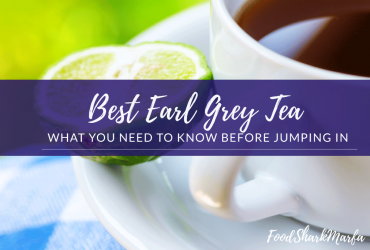
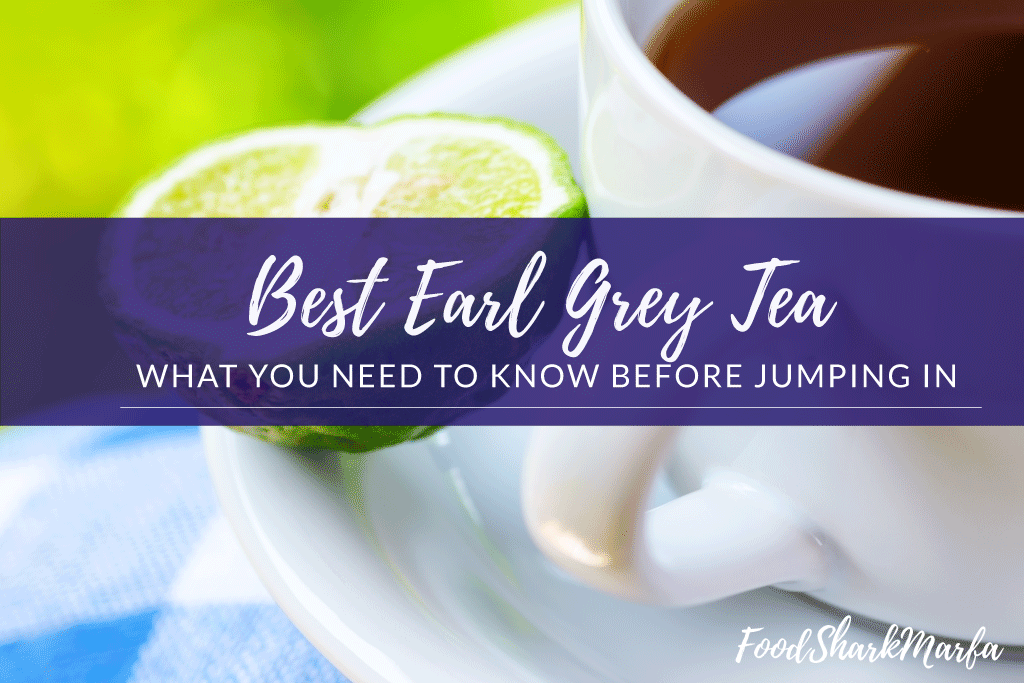
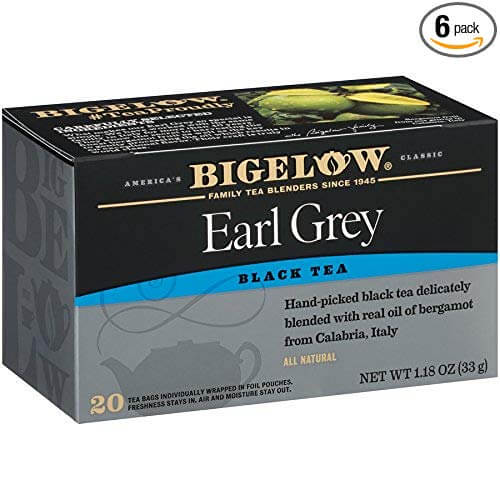
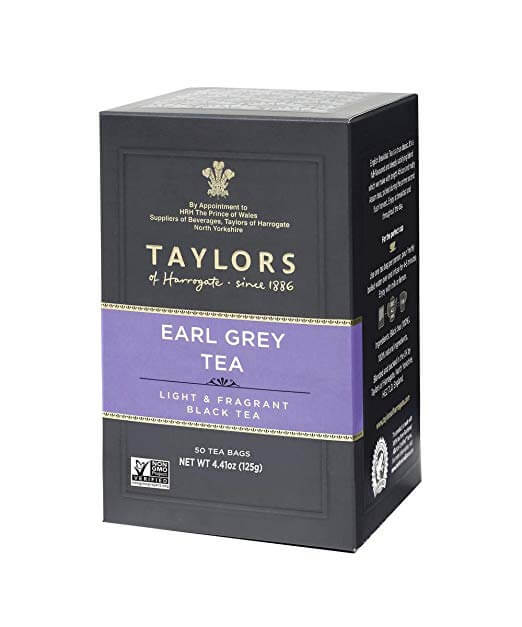
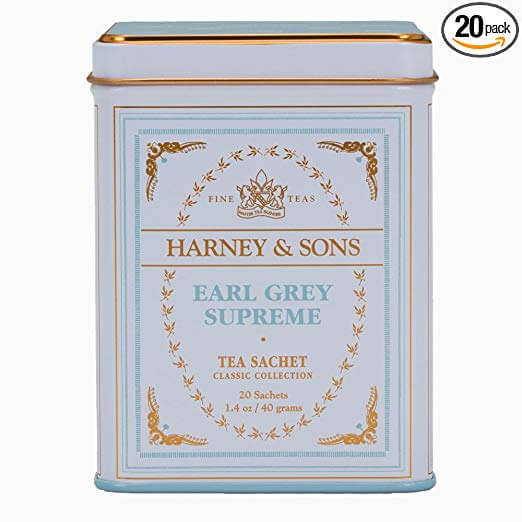
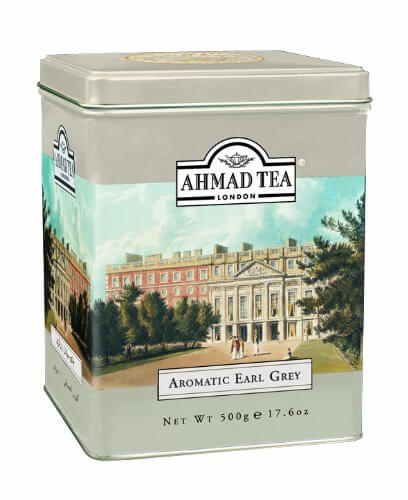

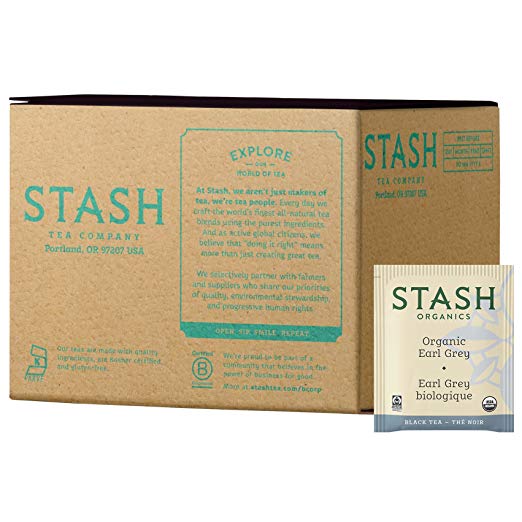
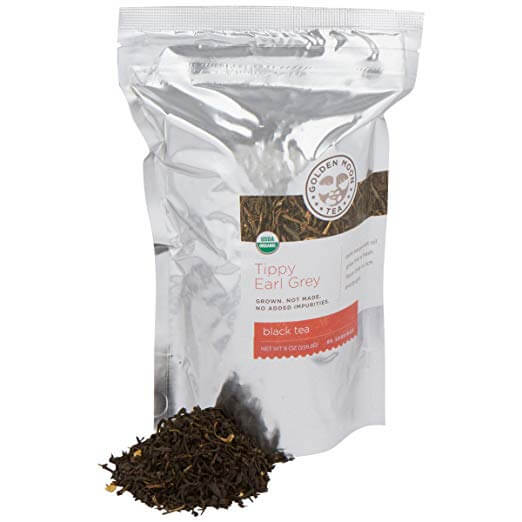
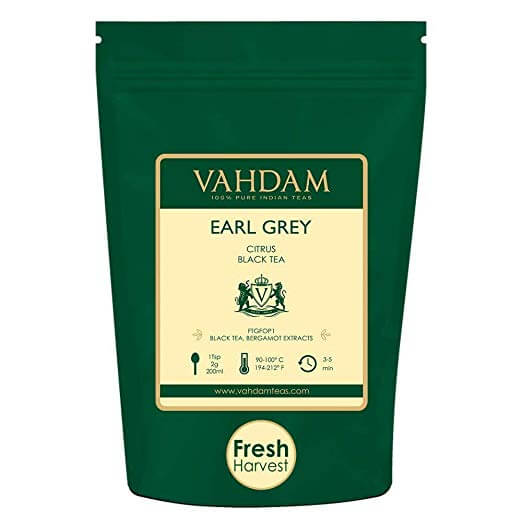
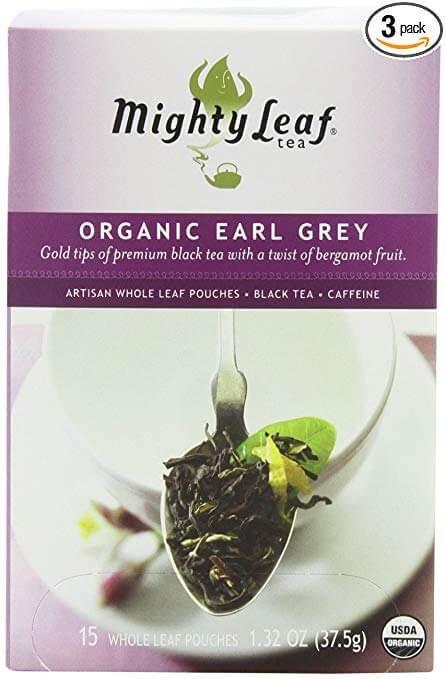
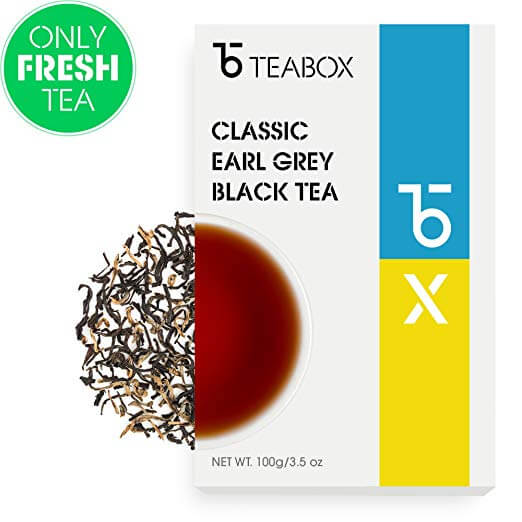

Related Posts
The 10 Best Green Teas in 2023
The 10 Best Oolong Teas in 2023
The 12 Best Detox Teas in 2023